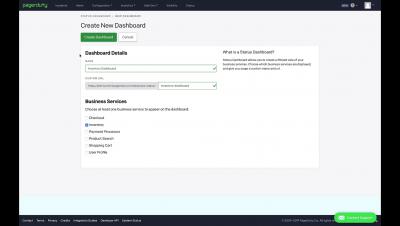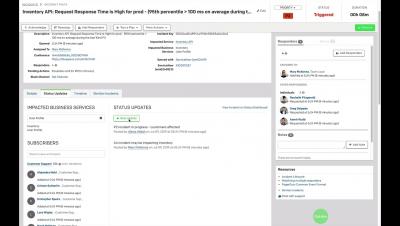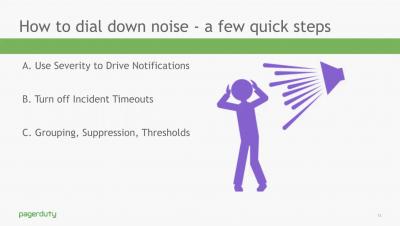Operations | Monitoring | ITSM | DevOps | Cloud
July 2019
Business Response: Create a Custom Dashboard
Business Response: Add Subscribers and Status Updates, View Status Dashboard
Optimize Your Services to Save Time, Money, and Sleep - July 2019
Keep Your Business Stakeholders Updated While You Save the Day
Imagine this: An airline encounters a major IT incident in a data center that affects their ticketing system. Behind the scenes, technical responders are scrambling to diagnose and fix the issue. However, because today’s systems are so complex, this issue is taking longer than expected to resolve, and hours have passed since the system went down. Meanwhile, passengers are stranded and taking their anger out on customer service agents and sharing their frustrations on social media.
From Scrum to Kanban: Why Most Delivery Teams at PagerDuty Made the Switch
Nearly two years ago, I joined PagerDuty as an Agile Coach with limited experience working with Kanban delivery teams. I started coaching two Scrum teams, but as soon as my teams got word that their peers using Kanban were happier and higher-performing, they pushed for the switch. Today, nearly all delivery teams here have transitioned from Scrum to Kanban.
A DevOps-Principled Approach to Inclusion, Diversity, and Belonging
Many organizations are transitioning to DevOps, a software practice where developers both write and operate their code. This transition is often driven by digital transformation and the need to innovate faster while being always on, 24/7. But what does DevOps have to do with diversity, inclusion, and belonging?
DevOps Adoption: Leading the Transformation
Serverless Event-Driven Workflows with PagerDuty and Amazon EventBridge
This week’s AWS Summit in New York was an exciting one for both AWS and PagerDuty. The AWS team rolled out Amazon EventBridge, a set of APIs for AWS CloudWatch Events that makes it easy for AWS SaaS partners to inject events for their customers to process in AWS. PagerDuty is excited to continue and deepen our long partnership with AWS by supporting EventBridge as a launch partner.
You've Been Accepted: PagerDuty University
Last year at PagerDuty Summit 2018, we officially launched PagerDuty University (PDU), a training program that provides hands-on classroom training to current and prospective customers so they can get the most out of the PagerDuty platform. Since its debut, PDU has taught hundreds of learners how they can optimize their instances to minimize downtime and improve responders’ quality of on-call life, in addition to providing thought leadership best practices to customers around the globe.











